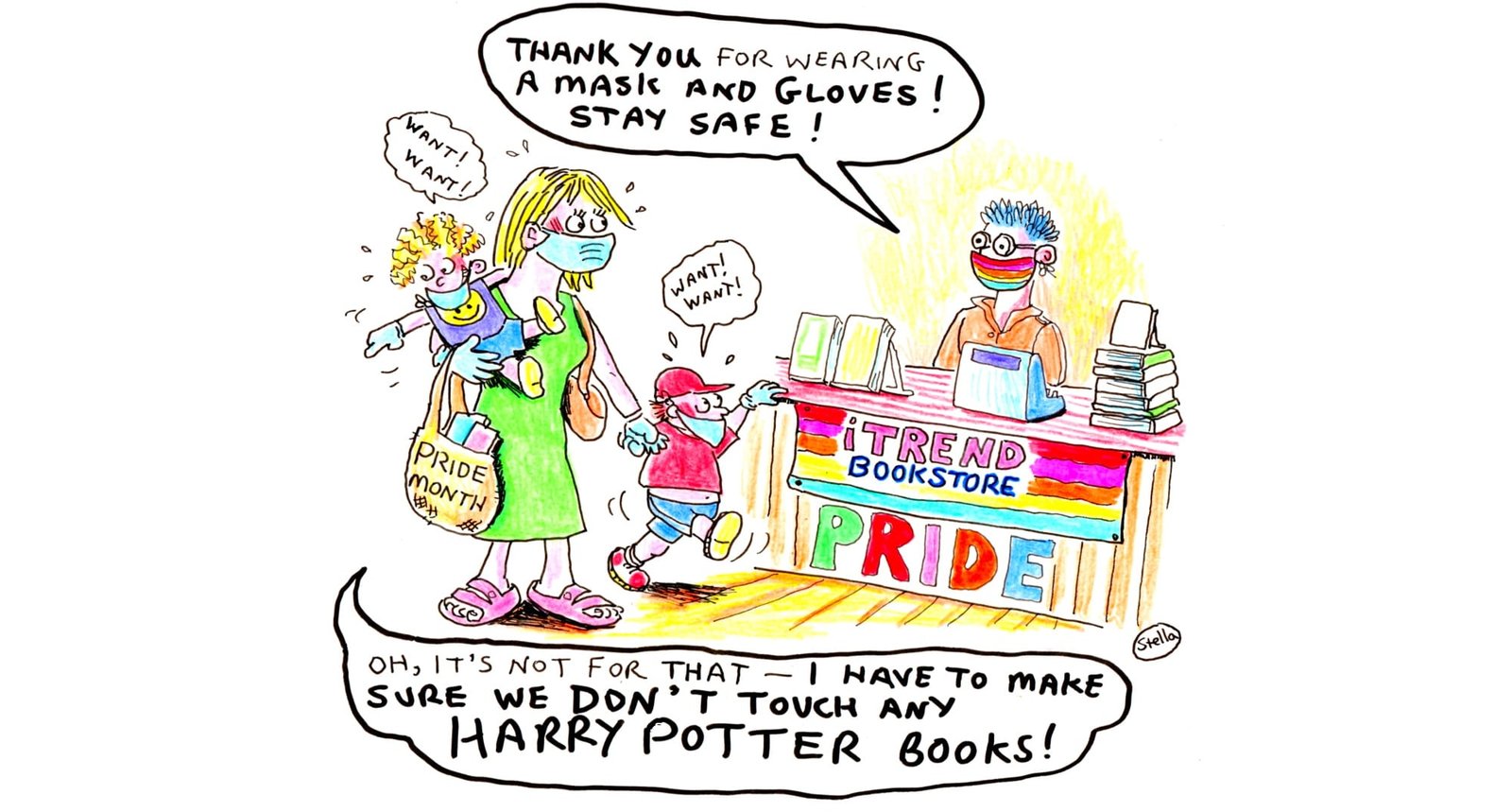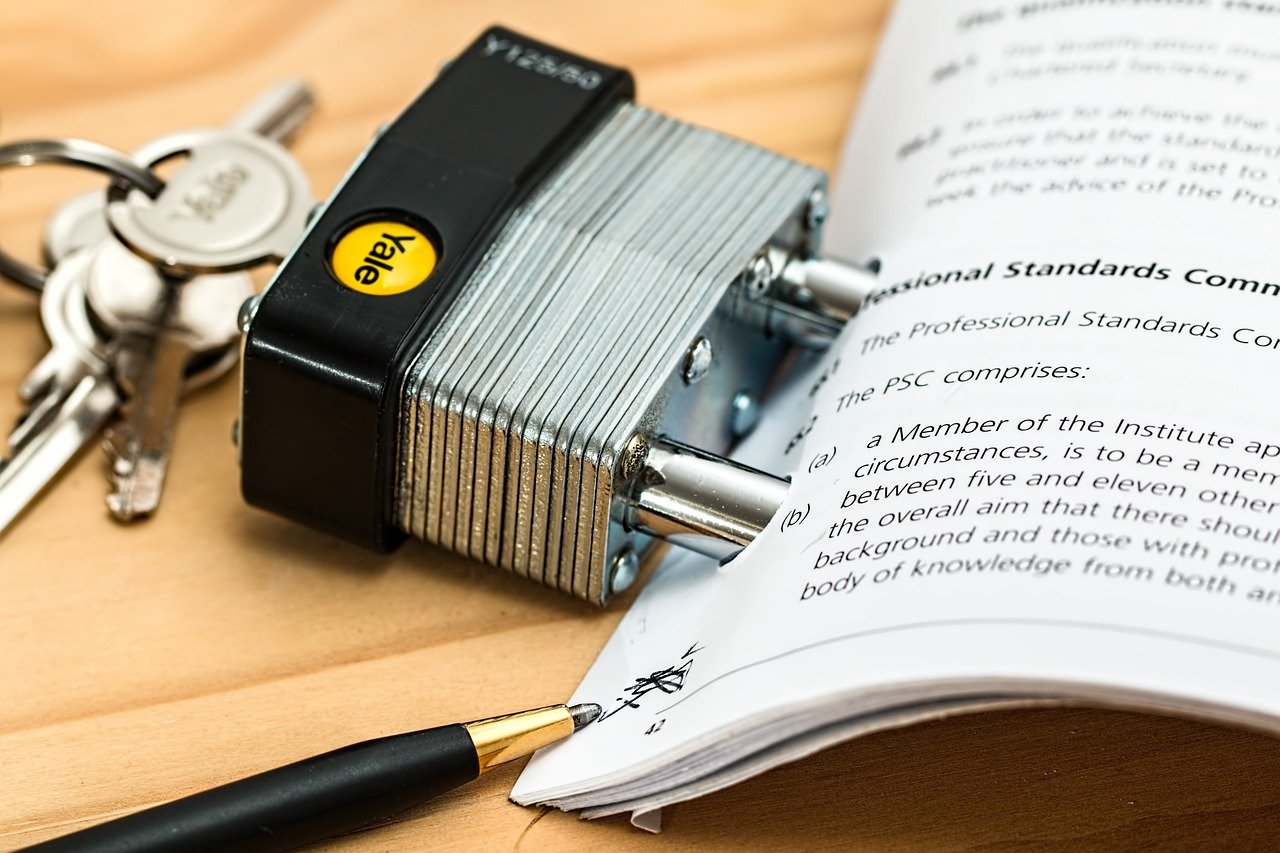After being met with a barrage of vitriol for her views on transactivism, #IStandWithJKRowling has been trending on Twitter. Here’s one woman’s take on it.
To many of my friends I am known for my almost encyclopaedic knowledge of, and extreme enthusiasm for, the Harry Potter books. I’m actually writing this wearing Potter themed socks and jumper. These stories offered me some escapism when I first discovered them after leaving an abusive relationship. They have offered me solace, entertainment, excitement and companionship through many rereads since then, and the thing I have always loved the most about them is the fantastic word-smithery and way that J.K. Rowling chooses and uses language to enhance her stories.
So I have found it interesting to say the least that she has now been criticised for defending the scientifically and factually correct usage of certain words, particularly the word woman.
I think we all understand that language is something that evolves over time. But also that there are certain truths which remain constant. Up and down for example. Left and right. On and off. And until recently man and woman, male and female, sex and gender.
Prior to a few years ago, and even when I was around and involved in the LGB community in the mid 2000s, most of us used the word transsexual, by which we understood a person who had undergone a medical transition to live as the opposite sex. We also had the transvestites, cross dressers and drag queens who wore clothing associated with the opposite sex for performance, provocation or titillation.
These terms have now been replaced by the catch all word transgender, and with this change has come some muddling of definitions. Many people still believe that by transgender we mean someone who has undertaken a medical transition. In the case of transwomen that is actually most often not the case. In fact as many as 98% of today’s transwomen keep their penis and up to 80% undergo no medical intervention such as hormonal treatment whatsoever.
The philosophy behind the trans movement has increasingly become
deeply and regressively conservative, using and redefining language to push a misogynistic and homophobic belief that girls have to like pink and wear dresses and fancy boys, whilst boys cannot do any of these things but instead must be macho and tough and assertive, all things girls cannot be, and so on.
As a feminist I believe that everyone should be free to live as their authentic selves, dress and present themselves however they wish, love and have relationships with whoever they choose, and not be boxed in by outdated and harmful stereotypes. I believe that the words girl and boy simply mean infants of the female and male sex respectively.
We have also seen a change in the way language is used to create hyperbole. This is a major feature of political commentary, particularly on both the far right and far left, and has gained traction as a result of social media. One such statement we often now see written as indisputable fact is that trans women (in this country predominantly white, middle aged male people) are the very most vulnerable and oppressed group in our society, and that any opposition to or even questioning of this statement is literal violence that is killing them. To put this into context, in this country in the last 10 years 7 trans women have been murdered. All by men. Meanwhile 12 trans women have committed murder over the same period. Their victims were half men and half women.
In the UK statistically transwomen are actually the demographic LEAST likely to be a victim of murder by percentile of our population. (Globally there is a tragically large number of black transwomen murdered. This is largely as a result of the sex trade. The best way to combat and alleviate this and protect this group is to advocate for the Nordic model and exit programmes that safely support those people in sexual exploitation.)
Which takes us back to that word woman. Whereas once we would have understood woman to mean simply adult human female, of the sex that produces large gametes, recently we have seen a blurring of the lines of definition not only for woman but even for the word female itself.
We are told that woman means anyone who identifies as such. Which in practical terms renders the word at best meaningless, and at worst, when imbibed with the ideology previously described, as harmful.
As a result of this we now find ourselves as a society using language in a way that has consequences that go far beyond stories and tweets. Words such as TERF and transphobe are now the means of silencing those who protest. And this new understanding of the word woman now means Philip Bunce who wears a frilly dress to work two days a week being awarded ‘Women in Business’ prizes, Lily Madigan who went by the nickname ‘Savilles apprentice’ being elected Labour Women’s Officer, Hannah Mouncey, Lauren Hubbard, Rachel McKinnon and many others unfairly competing against women in sport, Alex Drummond visiting schools complete with beard and penis to talk about being a lesbian, Fallon Fox nearly killing a MMA opponent, and the rapist Karen White being housed in women’s prisons and attacking the inmates and staff. It means women’s charities and health services having to change the words they use to speak about themselves and their work to be ‘more inclusive’ while men’s don’t have to. It means women’s services, such as refuges, that women have built and funded, being pushed to be inclusive at the expense of safeguarding because of a change in language rather than a change in risk. All the while women like Jo who question these events are being told to die in a fire or choke on a dick.
While language is used as a weapon.
While women are murdered at a rate of 2 a week and one in three of us is abused by men.
While we earn 20% less than men.
While we shoulder the burden of unpaid care work.
While our health concerns are dismissed and our illnesses underfunded.
Other new words are gaining traction. Cis is touted by many as a harmless descriptor of non trans people. But for this word to have any real meaning it means accepting those stereotypes and boxes. Menstruator, birth giver, pregnant person have become commonplace and while you might dismiss these words as harmless or even accurate, we have to consider how they might be used. We have found ourselves reduced to our bodily functions, whilst simultaneously not able to name our physicality as a reason for our oppression.
People like to say that the meaning of the word feminism is giving women choice, being kind, being inclusive. This is not true. Feminism is a fight. For our emancipation. For our liberation. If we speak the language of our oppressors we have no voice. If we tell women they can choose their oppression we will never be free. If we are inclusive of our oppressors we are complicit in our persecution.
So I believe that in our society women are a more vulnerable group. I believe that women deserve protection. I believe that our rights are worth fighting for. I believe that words matter, and that we should use them wisely.







